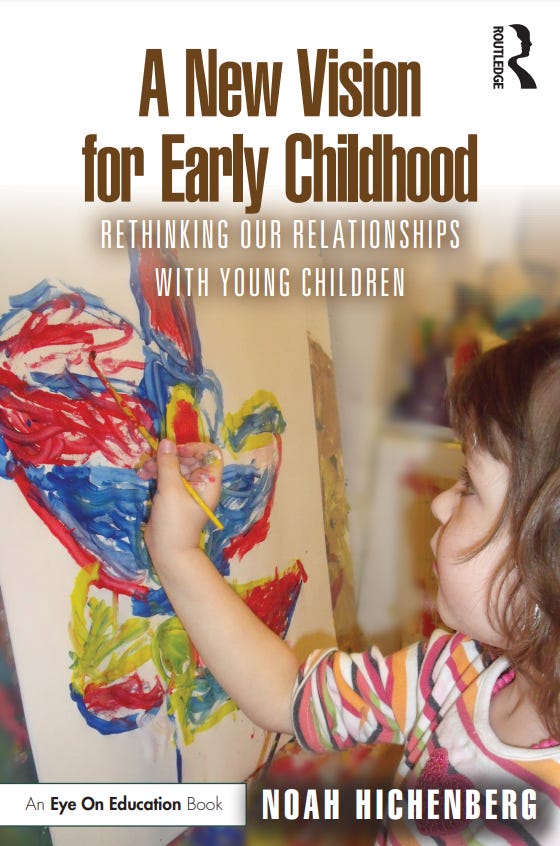What does it look like to move away from strategies of control and towards relationships of trust with young children? Is that even possible, given the state of constant supervision that saturates all aspects of a young child’s life?
Children are always being watched, being told what to do and what not to do. They have precious little space to explore the world on their terms, to become comfortable with themselves rather than an adult’s expectations of them. When they do explore, it is through the controlled exposure of early childhood - we prepare a separate world for them, an “age-appropriate” world, cutoff from meaningful community activities, participation, and engagement. We have created a world in which children are both made to be useless and require endless supervision and correction. This is a cultural reality, not a biological truth. Children have agency, they do not require constant surveillance, and they are able to meaningfully contribute to their local environment.
We can do less: we can recede from the minutia of our children’s lives. We can trust that their ideas have power before we intervene, we can believe that without our direction they will still find their way.
We can involve more: we can allow children access and engagement with the world outside of the sanitized, useless childhood we’ve created for them. We can re-introduce children to the world outside of the preschool classroom, developmentally appropriate practices, and age-based expectations.
My forthcoming book, A New Vision for Early Childhood: Rethinking Our Relationships with Young Children, presents the conceptual foundation for these ideas as well as pragmatic take-aways for parents and teachers of preschool-aged children. The book offers a concise, critical history of contemporary early childhood. This reveals the social construction of childhood, with an emphasis on how historically peculiar today’s preschool classroom is, requiring a dozen toddlers to do the same thing, at the same time. This is laid against my original ethnographic research into the daily life of one 2-year-old, offering intimate insight into how the constant presence of adult control shapes early childhood today and, yet, how a child retains the power of individual agency to push back against adults expectations and control. I explore the tension between adult control and child agency - when the relationship is defined by control, the child is faced with the same choice on repeat: submit, or resist. For the child, in today’s hyper-survielled childhood, to speak up is to resist. The expression of individual agency necessarily becomes an act of subversion - taking action in accordance with desires typically requires transgressing adult expectations. I urge parents and teachers to see children’s resistance as their agency.
We can reconsider our relationship with children. We can become allies instead of sheriffs, working with children instead of against them.




